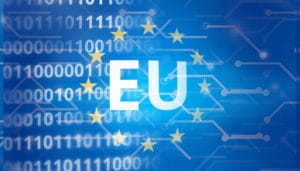The small Balkan country is reaching out to its NATO partners for help.
Montenegro is getting support from US and other allies in fending off cyberattacks against its information systems and electronic services, according to a report in Bloomberg News. The attack comes at a time of political turmoil, following the collapse of the Montenegrin government on August 19.
Hackers targeted websites and databases of the smallest former Yugoslav republic with the ‘Cuba’ ransomware and a new virus named ‘Zero Date’, Montenegro’s Public Administration Minister Marash Dukaj said in Facebook video. Montenegro joined the North Atlantic Treaty Organization in 2017 after ending close ties with Russia. Most government websites have been temporarily disabled as a precaution, he said.
“Montenegro is not alone”
FBI’s rapid-response Cyber Action Team is expected in Montenegro to help deal with the attacks, in “another proof of excellent cooperation between the United States of America and Montenegro”, Interior Ministry Filip Adzic said on a Facebook page after meeting FBI officials in the US.
“Montenegro is not alone in this situation, our NATO partners are with us”, Dukaj added. Officials are focused on stopping criminal groups from conducting such hacks, he said. Dusan Polovic, Montenegro’s cybersecurity chief, told news outlets that citizens’ personal data hadn’t been compromised, according to Bloomberg.
He didn’t name Russia as the culprit, but state broadcaster RTCG cited sources at the Balkan nation’s security agency (ANB) saying that Russia was behind the attack, Bloomberg reported. This in turn prompted the government to ask the US and other NATO allies for protection.
The US Embassy in Montenegro on Aug. 26 warned of a “persistent and ongoing” hack affecting the country. The European Union also pledged expert support to the country that has for years sought to join the bloc.
“EU wants to see Montenegro protected from cybersecurity threats”, EU ambassador Oana Kristina Popa said in a tweet. The EU is also backing a “multicountry project aimed at strengthening cyber resilience in Montenegro” that includes sending experts to help protect its critical infrastructure.
Tip: Data privacy: from necessary security step to competitive advantage


















